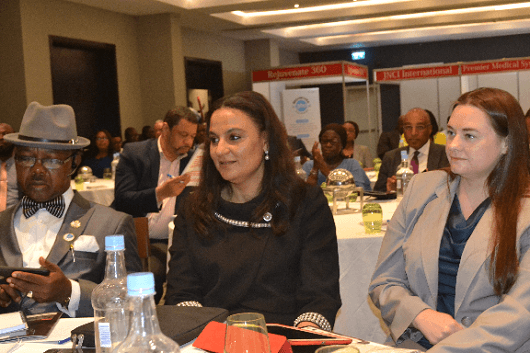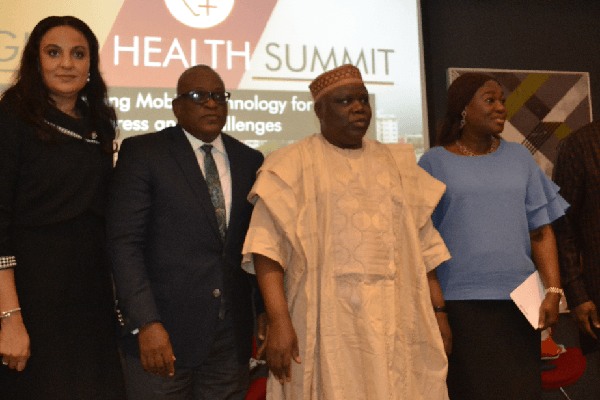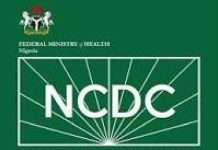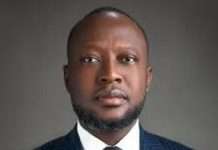Sequel to the huge advancement of technology in the various fields of endeavour, stakeholders in health sector have stressed the need to leverage mobile technology for the enhancement of digital healthcare delivery in the country.
The healthcare practitioners, who met at the Radisson Blu Hotel, Ikeja, Lagos, recently, for the 2019 Digital Health Summit, discussed the progress and challenges of the health sector in leveraging mobile technology in Nigeria.

Delivery the keynote address, titled :“Digital Health in Developing Countries: Challenges and Opportunities”; Mrs Clare Omatseye, president, Healthcare Federation of Nigeria (HFN), noted the importance of digital technology to practitioners, arguing that there is no way to advance healthcare without embracing digital technology.
“How can healthcare improve if we continue with our daily routines? We need to embrace technology and social media, because that is a positive way of relating with clients and potential clients. Thus, the future of healthcare is on social media.

“Digital health is a kind of transformation where we integrate digital electronics with better outcomes for healthcare. Thinking of digital health, it is contributing to 179 billion dollars, and in the next 6 years, the market is going to be 3 times the actual size at 536billion dollars, so we must latch on to it as soon as possible.
“Also talking about disruptive innovation in our environment, through the use of internet, patients can do a lot of things from the comfort of their homes. They can see the doctor and speak to the doctor as well at the comfort of their homes”, she stated.
Highlighting the challenges of digital health in Nigeria, she identified limited funding, as a major one, as a lot of banks are not willing to fund healthcare. “A situation where financial institutions start asking what is their benefits and profits when they merge with healthcare industry”.
Omatseye mentioned the second challenge of digital healthcare in Nigeria as poor access to data, adding that data is very important in having electronic patients record, and putting a lot on online real-time, will take the healthcare sector to the next level.
To round off her presentation, she described the amazing dimensions digital health has taken in other countries like South Africa, where HIV/AIDS patients no longer visit the hospital for their medications, but they rather get them dispensed through an ATM, after inputting their prescription codes into the machine.
Knowing full well that these digital functions are aided with Artificial Intelligence (AI), she reiterated it again that healthcare providers cannot shy away from leveraging mobile technology because AI will bring to healthcare four major things to healthcare. It will predict and prevent illnesses, diagnose disease, make drugs better than they are today and more importantly manage health conditions from the comfort of peoples’ homes.
Earlier in his opening remarks, the CEO, Premier Medical Systems, Dr Niyi Osamiluyi, explained the objective of the conference, which sought to highlight the digital solutions that leverage mobile technology to promote the achievement of Universal Health Coverage (UHC). He added that the summit provided an opportunity to review the progress made in the deployment of digital health interventions and to identify and address existing frictions.
The representative of the Federal Ministry of Health (FMOH), Mr Timothy Dasa, head of eHealth, disclosed the activities of the Federal Ministry of Health in improving digital health in Nigeria in order to achieve Universal Health Coverage.
The summit featured five panel discussion sessions, which were titled: Health Insurance; Telecoms; Tech Leaders; Investor/Funders; and NGO/Development Partners.










